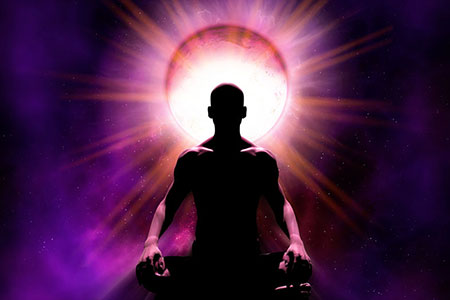law of grace
The Three Laws of Grace
 There are three primary Laws of Grace that function under the overarching Law of Attraction. Grace is generally associated with divine support or spiritual help, but in this context it simply means that we are always free to choose again.
There are three primary Laws of Grace that function under the overarching Law of Attraction. Grace is generally associated with divine support or spiritual help, but in this context it simply means that we are always free to choose again.
The Law of Love
The first Law of Grace is the Law of Love. The Law of Love does not refer to feelings, sentiments or emotions. Too often it is assumed that love is a feeling we get when we are with someone, but in metaphysics and spirituality love is not a feeling.
Instead, spiritual love is choosing to accept others as they are and to want what is best for them. What most of us know as ‘love’ today is actually ‘like,’ because to like someone or something is conditional. Real love, on the other hand, has no conditions. It is unconditional.
There is also a common belief about ‘love’ that can be very damaging to relationships. Sometimes we create emotional attachments to future events and declare that “this is love.” Yet, it is impossible to love a future other – either you love a person, or you do not.
When people conjure up extensive images and stories about a future version of another person and attach their mental and emotional attention to these things, they often create a strong sense of painful longing, which creates within them the desire to change the other person.
It is this painful yearning that is the key to understanding, because with the Law of Attraction like always attracts like. Painful longing can only ever attract more pain. It does not even matter how compatible two souls are in this life, if one of them is participating in such a painful longing, then pain will inevitably become the result of the relationship.
Love is unconditional acceptance and there is only one love. Therefore, Buddhists believe one cannot have friends and enemies. If you have enemies then eventually all of your friends will become enemies, and vice versa.
How To Clear Your Karma
 Karmic cycles are repetitive patterns in consciousness that emerge through a belief that is contrary to the laws of the Universe.
Karmic cycles are repetitive patterns in consciousness that emerge through a belief that is contrary to the laws of the Universe.
Some religions and spiritual teachings refer to humanity as the ‘children of God.’ When I use the term ‘God,’ I do not mean some off-world deity that is separate from us mere mortals. To me God is the All. It is the Creative Force. Being a ‘child’ of this Creative Force means that we have the same nature and creative capacity.
Many wisdom traditions also equate words, thoughts and consciousness with God’s ability to create. In other words, thought has a creative function in the Universe. Thoughts are words, images, and stories that are repeated in the mind and they have creative power.
Another way of saying this is that whatever we choose to think or believe about ourselves and others, and about the world around us, ultimately becomes true for us. This is important when discussing how to clear away old karmic patterns.
Karma are patterns of thought that are repeated in the mind and influence how we create our life experiences. Free will means that we have total freedom in what we choose to think and believe.
This is not to say that a specific thought, or even a behavior, is wrong or bad. In fact, the Universe or God always takes us at our own value and says yes to all our thinking and feeling patterns.
Karma is a secondary spiritual law to the Law of Attraction, that allows us to evolve continually into our higher potentials. From an esoteric or spiritual perspective this relates to the expansion of love, joy, and peace within our mind.
Karma and the Law of Attraction are also separated by a protective buffer, in that we often experience less damage than our minds can produce through thought, and we also receive more good than our minds can produce through thought. In metaphysics this is known as the Law of Grace. Continue reading
Soulmates Are A Divine Grace
 Soulmate connections are a very real and powerful phenomenon, but many people find it difficult to determine whether someone truly is a soulmate, or not.
Soulmate connections are a very real and powerful phenomenon, but many people find it difficult to determine whether someone truly is a soulmate, or not.
In my experience a soulmate is someone to whom we feel deeply connected, as though the communicating and communing that take place between you were not the product of intentional efforts, but rather a divine grace. This kind of relationship is so important to the soul that many have said there is nothing more precious in life.
We may find a soulmate in many different forms of relationships and in all areas of our lives, including friendship, marriage, work, family and recreation. We even find it with a delightful ‘critter’ – the pets we feel that special connection with.
Many times, when a soulmate first comes into our life, we have that feeling of familiarity as if we have known them before. Often, indeed, we have known them in a past life or many previous lives.
The famous American psychic Edgar Cayce stated that a soulmate is an individual who we have an ongoing connection with. The soul picks up on this longstanding connection with that person again and again in various times and places and over many lifetimes.
Most importantly, Cayce further stated that we tend to be attracted to another person at a soul level, because by being with that individual, we are somehow provided with “an impetus to become whole ourselves”. This is also known as ‘soul recognition’. We are therefore not drawn to our soulmate simply because that person is our unique complement.
To Live Gratitude Is To Touch Heaven
 One aspect of spiritual living too seldom addressed is our lack of true appreciation and gratitude for all the blessings in our lives, regardless of our circumstances.
One aspect of spiritual living too seldom addressed is our lack of true appreciation and gratitude for all the blessings in our lives, regardless of our circumstances.
Some spiritual seekers tend to be very keen on beating the drum of prosperity, and becoming fixated on the Law of Attraction and manifesting abundance, which is too often merely a thinly disguised obsession with material wealth and earthly comforts.
Most of us simply take too much for granted every day. We experience so many blessings of joy, beauty, forgiveness, protection and Divine grace, which we seldom acknowledge in our lives. We always have something to be grateful, or thankful for, no matter how difficult times may be. As a species we are very good at complaining about what we don’t have, but we seem to find it difficult to give thanks for what we do have.
We seldom express our gratitude and appreciation towards those we love and cherish, and we hardly ever remember to share what we have with those who have less – not because we feel obligated, but because we feel so much appreciation that we simply want to share our abundant blessings with others. Charity is not about lending a helping hand; it is about celebrating all that we have, and to share our joy and appreciation.
Research has demonstrated an indisputable connection between gratitude and spirituality. It is no coincidence that gratitude is regarded as a much cherished and valued quality by most world religions, including the Buddhist, Muslim, Hindu Jewish, and Christian traditions. When reviewing the large body of research done on the subject, gratitude seems to play a much more noteworthy role in our happiness and well-being than most other emotions and personality traits.
Several research studies in recent years have shown that people who have a tendency towards higher levels of gratitude also tend to report higher levels of psychological, emotional and physical well-being. People who are grateful have been shown to be happier, more optimistic and more content with their lives. They also appear to have lower levels of stress and depression, and they are more satisfied with their relationships and social interaction with others.
Sheltering In Gentle Grace
 The subject and substance of grace is near and dear to my heart. Its consistency is gentle and ethereal, but nonetheless a source of grounded strength. I appreciate it as a richly layered, soft, spiritually textured energy, flowing between Heaven and Earth – divine in its origin from God, yet accessible in unlimited ways within, and around us.
The subject and substance of grace is near and dear to my heart. Its consistency is gentle and ethereal, but nonetheless a source of grounded strength. I appreciate it as a richly layered, soft, spiritually textured energy, flowing between Heaven and Earth – divine in its origin from God, yet accessible in unlimited ways within, and around us.
A few years ago, I wrote a book on grace, moving in divine alignment. The words channeled through me, as if being dictated by Grace herself, a feminine goddess personifying the compassionate energy emanating from God as the Supreme Source. Therein, the quality of grace on the hard paths of life revealed itself to me as follows.
When the dance stands still in the dark – outside my comfort zone, in the space of the unknown, in the history of pain, before the next step – I tend to feel neither peaceful, patient, nor poised.
I have grabbed for answers, change, relief, but found none independently within my clutch. So, I envision a fabric of grace, formed when the favor of God becomes interwoven with the sweetness of elegant movement and presence.
Unlike ordinary cloth, the fabric of grace dons a mystical twist. It is a lifeline of being, bearing inexhaustible strength to uplift and pull us forward through all experiences.
There is an artistry of the soul in reaching for this spiritual material of grace. It calls forth inner enlightenment and skill to clasp it in the heart, not in the hands.
The Universal Law Of Karma
 Karma is a universal spiritual law, the same way that gravity is a law of nature or physics. The Law of Karma basically states that ‘as you sow, shall you reap.’ Karma is therefore the spiritual principle of ‘cause and effect.’ For every action there is an equal reaction, or ripple effect.
Karma is a universal spiritual law, the same way that gravity is a law of nature or physics. The Law of Karma basically states that ‘as you sow, shall you reap.’ Karma is therefore the spiritual principle of ‘cause and effect.’ For every action there is an equal reaction, or ripple effect.
Karma is also what keeps everything in the Universe in balance. The Chinese symbol of Yin and Yang perfectly illustrates this process of ‘karmic balancing.’ It shows how all the positive and negative forces in the universe balance each other out, because karma equalizes the energy that flows through everything.
Every single action that we take in life is therefore like a spiritual seed we plant. Some of the seeds will sprout quickly, while others may take lifetimes to come to fruition. However long it may take, one thing is for sure, in time every seed we sow will germinate… and we will eventually have to face the result of all our actions and choices.
Karma is therefore an endless chain of actions and reactions, which binds every soul to their good and bad deeds. The soul, born into a physical body, is constantly acting to bring about the results of activity from one life to the next. We choose to act in a certain way, and then become involved with the reactions or consequences of each chosen action.
After giving up one physical body, we eventually enter into another, and we mostly forget everything about that previous life. In this way the soul reaps the results of his actions, from lifetime to lifetime. Everything that happens in our lives is nothing but the reaction of past activities.
The Truth About Manifesting
 Spiritual seekers often ask, “Why am I struggling to manifest what I want? Why is it taking so long?” Many books and workshops on the Law of Attraction and the practice of manifesting, tend to give people the false belief that they can simply say something like, “I want a million dollars,” and then it will show up in their bank account.
Spiritual seekers often ask, “Why am I struggling to manifest what I want? Why is it taking so long?” Many books and workshops on the Law of Attraction and the practice of manifesting, tend to give people the false belief that they can simply say something like, “I want a million dollars,” and then it will show up in their bank account.
I have attended many of these manifesting workshops in my lifetime, and I have watched many webinars on the subject. Most of them have one thing in common: the people leading them are charging a fee and are certainly making money. But I have yet to see their students achieve the same!
Manifesting is tricky. You have to learn to allow, and to keep your thoughts, your free will and your ego out of it. Manifesting is also guided by what you are meant to have, or the lessons that you are meant to learn from past lives, current or past karma, and even your desire to have it all ‘right now.’
We have all had experiences of thinking of a person… and then suddenly you run into them, or receive a phone call, text or email from them. Is it just coincidence, or is it synchronicity, or did you actually manifest it? Take a moment to consider this.